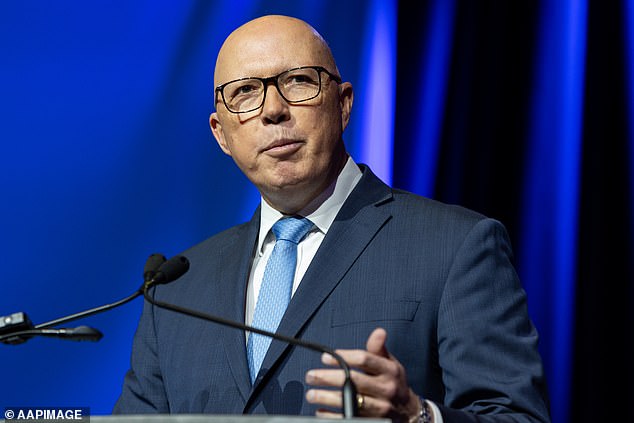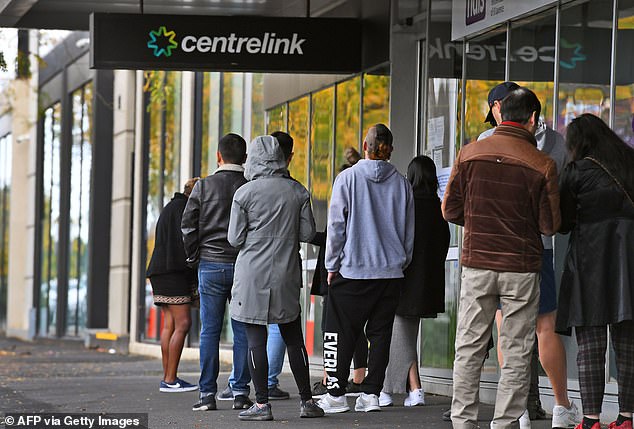The Coalition has overtaken Labor in the polls as more Australians abandon Anthony Albanese amid the cost of living crisis.
The coalition leads with 51.5 percent to 48.5 percent on a two-party preference basis in the latest RedBridge poll.
It is the first time the opposition has overtaken Labor in this particular poll since Albanese was elected prime minister in 2022.
Just a few months ago, in April, Labour was leading by a comfortable 4 percent. The Daily Telegraph reported.
The shift in sentiment comes as more Australians become increasingly disillusioned with Mr Albanese’s cost of living policies.
Peter Dutton’s support is supported by male voters who are abandoning minor parties such as the Greens.
Since April, support for the Coalition’s primary elections has increased from 37 percent to 41 percent.
But among middle- and low-income voters, the jump was even greater.
The Coalition has overtaken Labor in the polls as more Australians abandon Anthony Albanese amid the cost of living crisis.

Peter Dutton’s support is supported by male voters who are abandoning minor parties such as the Greens.
Among voters earning less than $1,000 a week, support rose six percent, and among those earning between $1,000 and $1,900, votes rose four percent.
Support for Labor across both income groups fell over the same period, dropping from 35 percent to 31 percent for those earning $1,000 a week, and from 36 percent to 31 percent for residents earning between $1,000 and $1,900 a week.
Also worrying for Albanese, who faces a federal election in May, is that Labor’s primary vote has fallen across all demographic groups from 32 per cent to 31 per cent – 1.58 per cent below its vote at the last election.
But it is great news for the Coalition’s primary vote as they have moved up to 41 per cent, which is up from the 35.7 per cent of the vote Scott Morrison received when he lost in 2022.
The current figure is also close to the 42.04 per cent Morrison beat Shorten by in 2019.
Kosmos Samaras, director of strategy and analysis at RedBridge and a former Labour strategist, said many governments around the world were facing a similar situation.

Among voters earning less than $1,000 a week, support rose by six percent, and among those earning between $1,000 and $1,900, votes rose by four percent (file image)
“In many Western democracies, every government in power has lost or is losing in the polls,” he said.
‘This is a global trend driven by an affordability crisis that for many low-income people is worse than any recession they or their families have ever faced.’
Tony Barry, Redbridge’s director of corporate affairs and communications, said it was “a difficult time for a government in power” and believed it was even more difficult if undecided voters saw them as “a mediocre government in power”.
“We’re going to see a number of electoral changes in many jurisdictions over the next 12 months and with the mood so strongly negative in Australia, Anthony Albanese needs to (outline) a credible plan for hope,” he said.


